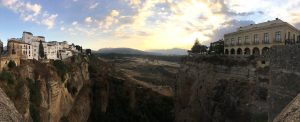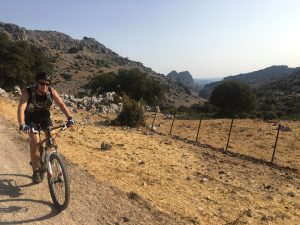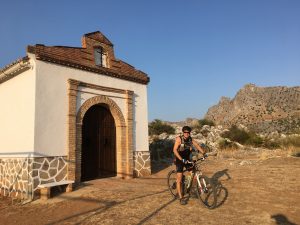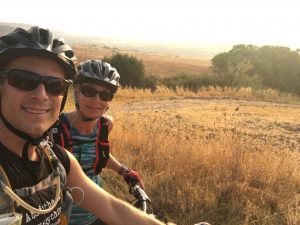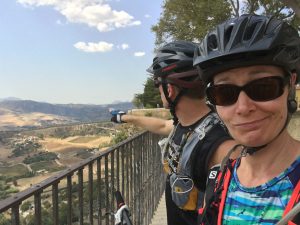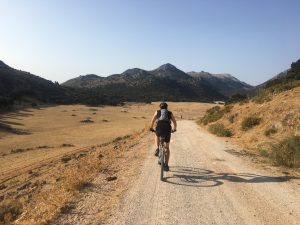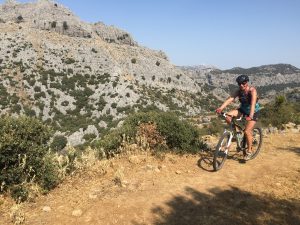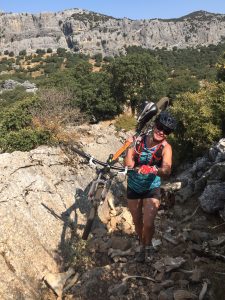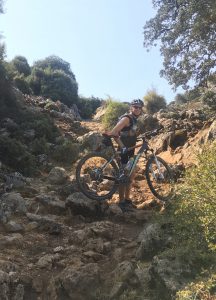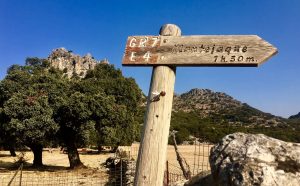 We went to Andalusia at the wrong time of year and for that we were punished.Punished with a heat so violent, so searing, there was nothing we could do but drink cold, skunky beer by the litre, and between beers, nap.
We went to Andalusia at the wrong time of year and for that we were punished.Punished with a heat so violent, so searing, there was nothing we could do but drink cold, skunky beer by the litre, and between beers, nap.
Between beers and naps, I had to summon the stamina and coolheadedness to finish the final revisions on my book. All the broad sweeps suggested by my editor had been tinkered with, the new bits written and rewritten, my rethinks, rethought. All that remained was to make sure it still hung together, that all the missing determiners were found and installed, no words or phrases overused, small hiccups sorted out, and two unloved but indispensable sentences from page two accommodated somewhere later in the book. For me, this short holiday in Spain was about finishing up the finishing.
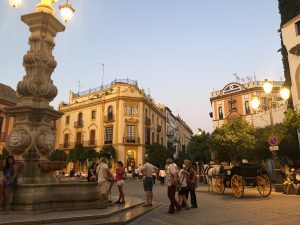
Only we chose the wrong part of Spain for late summer, particularly since we prefer being active and sporty while vacationing. (Exhibits A, B, and C.) Our first stop, Seville, was too sizzling even for a long, morning jog. It was as if the whole of that stunning city, clip-clopping with horse-drawn carriages, was itself a horseshoe still glowing fire-red in the blacksmith’s coals. In Seville (39C), I read zero pages of my manuscript.
Córdoba (38C), hunkered further up the Guadalquivir river, was just as blistering, but with tighter, steeper streets and stingier with its breezes. Here again, we resigned ourselves to inactivity—to being tourists—wandering the Mezquita-Catedral de Córdoba and boarding a bus to visit the ancient ruins of the palace city of Medina Azahara, built (and swiftly abandoned) under Muslim rule in the 10th century. Staggering around the tumbled stones as if in the hot crumbs of a pizza oven, we lost any interest we’d ever had in history, in the rise and fall of empires, of overthrows of any stripe. We talked only of air-conditioning and refrigerated drinks. In the afternoon, on the shaded terrace (33C) of our bed & breakfast, I poured myself a beer and tried to read my manuscript. I’d exported it to my iPad so I could pretend it was already published, but it slipped from my fingers like a pat of butter. I managed 30 pages. Then I napped.
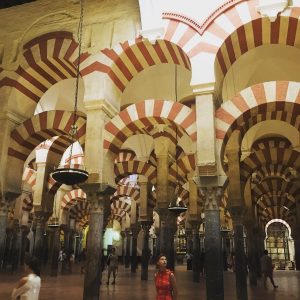
From Córdoba we headed south to Ronda: closer to the sea and higher in the sun-baked hills crisscrossed with stubby olive groves and lush, gurgling gorges. It was still hot, but less like being clamped in a curling iron and more like staring down the barrel of a hairdryer, and this only between 1PM and sunset.
In Ronda we’d rented mountain bikes from Hike+Bike the Sierras: nimble, twenty-niner hardtails, impeccably tuned. Here, surely, between biking, beers, and napping, I would summon the stamina and coolheadedness to finish the final revisions on my book.
This was, it turned out, the perfect spot to be writerly. Ronda claims to be the village where James Joyce put the polishing touches on Ulysses, no doubt eyeballing the Spanish lasses and their plunging V-necks all the while. Indeed, the town itself possesses a plummeting rose-pink, sweat-slick neckline of its own. Seduced, we took photo after photo and hunted for the best vantage point to peep through Ronda’s cracks.
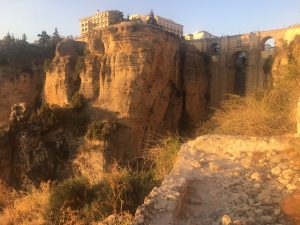
Orson Welles and Earnest Hemingway, coincidentally, were also Ronda enthusiasts and regular visitors. “The entire town and as far as you can see in any direction is romantic background,” Hemingway, between gory bullfights, gushed of Ronda.
And then there’s Ranier Maria Rilke, who reputedly travelled to Spain seeking to claw out of an epic case of writer’s block. Córdoba and Seville failed him miserably but in Ronda he rediscovered his rhythm. “For Rilke,” wrote one Rilke scholar, “Ronda was a place of liberation.”
I didn’t know Ronda’s literary cred before visiting. We had chosen it because it looked dashing in photos, boasted good food and wine, and was reputed to have decent off-road biking. It lived up to its billing on all counts. We set our alarms to go off an hour before dawn so as to be rolling out of town on the fresh breath of daybreak. We pedaled over scrubby hills on dusty trails, dirt tracks, and cracked, cobbled roads linking one steep incline to another. Our first route took us 37 KM south via Jimera de Libar to Cañada del Real Tesoro, where we could catch the 12:52 train back up to Ronda. Day two we ventured north, a 57 KM circuit that saw us dipping back through the troglodyte village of Setenil de las Bodegas. For our third ride, we explored the higher hills above the route we’d taken the first day: following the GR hiking paths, where we could, with a panadería stop for snacks in Montejaque.
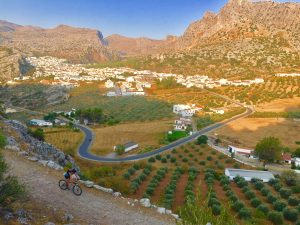
When the mountains got too precipitous or the air too sweltering, we humbly pushed our bikes. Twice, when the trail petered away and the mountain got too knobby and rough, we hoisted our bikes onto our shoulders and carried them, feeling burly. We tried, and sometimes succeeded, to make it back up to Ronda before heat set itself down like an iron. Most important: we adventured. That’s how it felt. On the longest climbs and on swooping descents my book crept back into my thoughts, solutions unwinding in my subconscious. Tiny kinks seemed to shake themselves smooth while I held my rattling handlebars instead of my iPad and pen. And back in Ronda, the beer tasted better, the naps felt richer, and the revisions came easy.
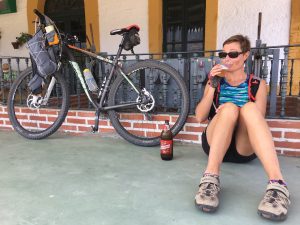
I’m not quite done, but I can see the finish line at the end of what’s been one hell of a hilly ride. In my book, there’s little in the way of poetry and no goring of bulls of any sort. I indulge in long sentences and introspection. Nor would I dare to compare my book to Ulysses, not for a moment. It’s not radical or raunchy, and, I humbly submit: it’s infinitely more readable. But I’d also hazard a guess that Ronda’s celebrity writers club didn’t set down their sangria long enough to do much in the way of two-wheeled, off-piste adventuring. What a bunch of layabouts.
All going to plan, my book will be published in 2018/2019, and Ronda will be able to say it had a hand in its completion.
By popular request, some more biking photos.
